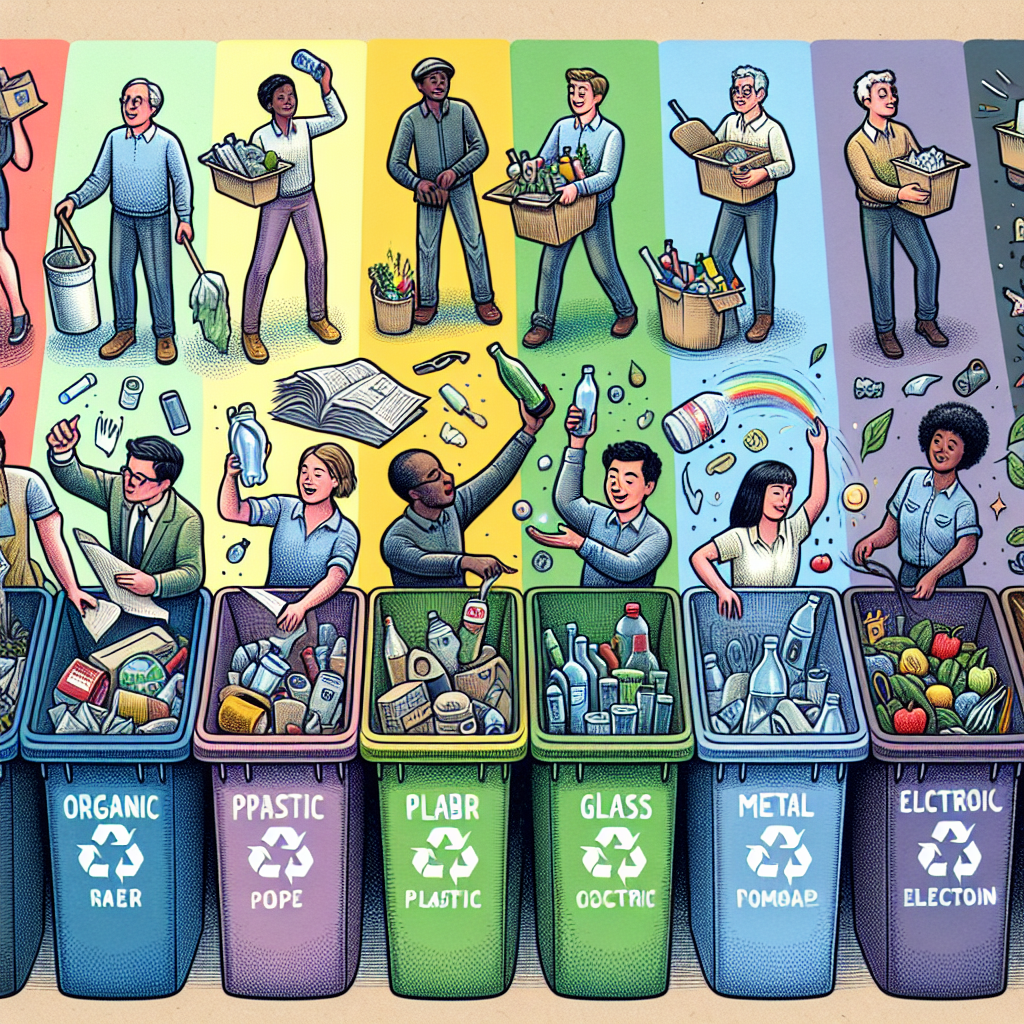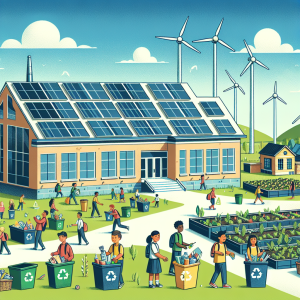In an era where environmental consciousness is more crucial than ever, understanding the basics of recycling can empower individuals to make responsible choices about waste management. Recycling not only conserves natural resources and reduces pollution but also helps to diminish the amount of waste sent to landfills. This beginner’s guide will walk you through the fundamentals of recycling, why it matters, and how to start incorporating it into your daily life.
What is Recycling?
Recycling is the process of converting waste materials into reusable forms. This usually involves collecting materials such as paper, glass, plastic, and metal, and processing them to make new products. By doing so, we minimize the consumption of fresh raw materials, reduce energy usage, and lower greenhouse gas emissions.
Why is Recycling Important?
-
- Conserves Resources: Recycling helps conserve natural resources such as timber, water, and minerals. For instance, recycling paper reduces the need for deforestation for new wood pulp.
- Conserves Resources: Recycling helps conserve natural resources such as timber, water, and minerals. For instance, recycling paper reduces the need for deforestation for new wood pulp.
-
- Reduces Energy Consumption: Producing products from recycled materials often requires less energy compared to manufacturing from virgin materials. For example, recycling aluminum can save up to 95% of the energy required to create new aluminum from bauxite.
- Reduces Energy Consumption: Producing products from recycled materials often requires less energy compared to manufacturing from virgin materials. For example, recycling aluminum can save up to 95% of the energy required to create new aluminum from bauxite.
-
- Lowers Pollution: Manufacturing using recycled materials typically results in fewer emissions of greenhouse gases and pollutants, contributing to cleaner air and a healthier planet.
- Lowers Pollution: Manufacturing using recycled materials typically results in fewer emissions of greenhouse gases and pollutants, contributing to cleaner air and a healthier planet.
-
- Minimizes Landfill Waste: Landfills are a significant source of land and water pollution. Recycling diverts materials from landfills, extending their lifespan and reducing the need for new landfill sites.
- Minimizes Landfill Waste: Landfills are a significant source of land and water pollution. Recycling diverts materials from landfills, extending their lifespan and reducing the need for new landfill sites.
-
- Promotes Sustainability: Recycling fosters a circular economy where products are designed to be reused, repaired, and recycled, leading to sustainable resource management.
- Promotes Sustainability: Recycling fosters a circular economy where products are designed to be reused, repaired, and recycled, leading to sustainable resource management.
How to Start Recycling
1. Know Your Local Guidelines
Recycling laws and regulations vary by location. Check with your local waste management authority to understand which materials are recyclable in your area, as there can be specific sorting requirements or materials not accepted.
2. Set Up a Home Recycling System
Implement a simple and effective home recycling system:
-
- Designate Bins: Use separate bins for different types of materials (e.g., paper, plastic, glass, and metal). Clearly label each bin to avoid confusion.
-
- Keep It Clean: Rinse containers to remove residue before recycling to prevent contamination. Dirty items can spoil entire batches of recyclables.
3. Learn What to Recycle
Here’s a quick guide to common recyclable materials:
-
- Paper: Cardboard, newspapers, magazines, and office paper are generally recyclable. However, items like greasy pizza boxes and non-recyclable paper (like laminated or shiny paper) usually aren’t.
- Paper: Cardboard, newspapers, magazines, and office paper are generally recyclable. However, items like greasy pizza boxes and non-recyclable paper (like laminated or shiny paper) usually aren’t.
-
- Plastics: Plastics are often marked with a recycling number (1 through 7). Commonly recyclable plastics include HDPE (2) such as milk jugs and PET (1) like water bottles. Check local guidelines for specifics.
- Plastics: Plastics are often marked with a recycling number (1 through 7). Commonly recyclable plastics include HDPE (2) such as milk jugs and PET (1) like water bottles. Check local guidelines for specifics.
-
- Glass: Most glass bottles and jars can be recycled. Avoid mixed glass or glass cookware and dishware unless your local program accepts them.
- Glass: Most glass bottles and jars can be recycled. Avoid mixed glass or glass cookware and dishware unless your local program accepts them.
-
- Metals: Aluminum cans (like soda cans) and tin cans (such as food cans) are widely accepted.
- Metals: Aluminum cans (like soda cans) and tin cans (such as food cans) are widely accepted.
4. Reduce and Reuse Before Recycling
Recycling is just one part of the waste management hierarchy. The best approach is to reduce waste in the first place and to reuse products when possible. Consider:
-
- Reducing packaging waste by buying in bulk.
-
- Reusing items like jars for storage or cloth bags for shopping.
5. Educate Others
Share your knowledge about recycling with friends and family. By educating others, you can help foster a community culture that values responsible waste management.
Conclusion
By incorporating recycling into our daily routines, we contribute to a healthier planet and demonstrate our commitment to sustainable living. As you embark on this journey of responsible waste management, remember that every small action counts—recycling today ensures a better tomorrow for future generations. Start with the basics, stay informed, and inspire others to join the cause!



